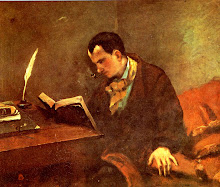Brooks say that to make a "poem or novel the central concern of criticism has appeared to mean cutting it loose from its author and from his life as a man, with his own particular hopes, fears, interest, conflicts, etc." Am I wrong to assume that all the emotions from the author should be apparent in the text? Anything that the author intended the reader to know he/she would transfer it into the text itself. But then again, what if the author is writing something that is opposite of what they believe? So many questions.
Brooks places a lot of weight on the readers' shoulders. I agree with him that there is no ideal reader (and perhaps no ideal author). But I do think that there is some merit in formalism and close reading of the text without outside influences.

As a writer, I struggle with the role of the critic. Brooks has opened my thinking when he states, "With reference to the help which the critic can give to the practising artist...he can give only negative help...Perhaps he can do little more than indicate whether in his opinion the work has succeeded or failed" (29). Close reading would facilitate this approach.
ReplyDeleteClose readings may be intensely useful (for example – when making meaning of thick critical theory texts), although in his article Peckham seems to provide a reasonable counterpoint to Brooks by looking at the role of context in regard to the interpretation of literature. He suggests that “uncertainty is the very condition of interpretation” (Newton 106) and that intended textual meaning may be muted if the audience does not have the same understanding (the same interpretation of symbols) as the author. Peckham argues that we cannot agree to what is right or wrong in an interpretation as there is no criteria to argue the accuracy of one position over another. Instead, he asks, “why is interpretational variety possible?” (Newton 106). His conclusion is that the interpretation is determined “by means of perceptual attributes” (Newton 107), or basically that each reader brings his or her own “matrix” for understanding to the table when interpreting a text.
ReplyDeleteYou misinterpreted the piece almost exactly.
ReplyDelete